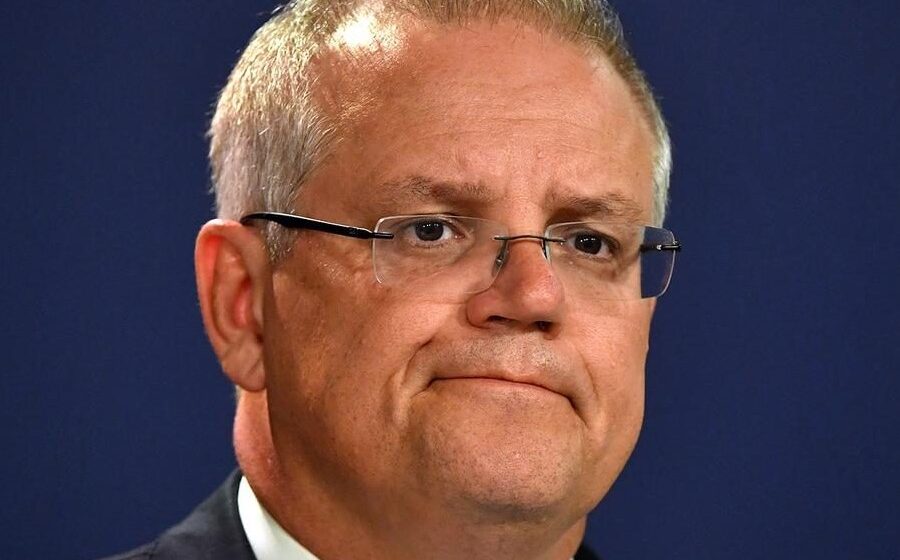Prime Minister Scott Morrison has tried to ease concerns the nation’s health system could soon be overwhelmed by COVID-19 patients.
The number of Australians hospitalised after becoming infected with the virus topped 1700 on Sunday, with more than 1000 of them in NSW alone.
Mr Morrison said the federal and state governments had prepared for a surge in patients and were now confident the Omicron variant causes far less severe illness than previous strains.
“Most of us now probably know someone who has had COVID and we know that in the overwhelming number of cases they are telling them it’s been a mild illness.”
“That doesn’t mean to say it can’t put pressure on the hospital system, it can, and that’s why we’re working very closely with the premiers and chief ministers to make sure those resources are there,” he added.
Mr Morrison said “the majority” of COVID patients admitted were either unvaccinated or had been infected with the Delta strain.
“If you want to end up in hospital, the most likely way to end up there from COVID is to be unvaccinated,” he said.
“The second most likely reason is they have Delta, not Omicron, and Omicron is overtaking now the Delta variant of this virus.
The Omicron case that are finding their way into the health system are very, very small.
The prime minister said Australia’s COVID numbers were closely mirroring those in the United Kingdom.
“We’ve seen ICU rates and those on ventilators remaining quite flat, despite the fact that even hospitalisation numbers have risen and even more so case numbers.”
Mr Morrison also urged infected people to only call an ambulance or head to hospital if they require urgent medical treatment.
“People only need to be calling that number if you have a medical emergency,” he said, when asked about lengthy wait times for triple-0 calls.
“Having some COVID symptoms is not a medical emergency.
“Rising case numbers is part of the Omicron variant, it’s part of the new phase of the pandemic we’re in.
“We have changed now and we have to stop thinking about case numbers and thinking about serious illness, living with the virus, managing our own health, and ensuring that we’re monitoring those symptoms and keeping our economy going.”
The prime minister also resisted calls to provide rapid antigen tests to everyone at no cost.
“We’re at a stage of the pandemic where you can’t just go around making everything free,” he said.
Close contacts and those with symptoms can access a rapid test for free while everyone else must buy them from pharmacies and supermarkets.
In the 24 hours to Saturday evening, 32,341 COVID-19 cases were reported nationwide: 18,278 of them in NSW, 7172 in Victoria, 3587 in Queensland, 2298 in South Australia and 506 in the ACT.
There were three virus-related deaths recorded in Victoria on Sunday and two in NSW.
Hospitalisations are also climbing, with 1066 people with the virus in NSW hospitals including 83 in intensive care.
An additional 472 people are in Victorian hospitals with COVID-19, with 52 active cases in intensive care including 22 requiring ventilation.
Queensland had 112 patients in care on Sunday, five of them in ICUs and none requiring ventilation.
Tasmania recorded 404 coronavirus cases on Sunday, the Northern Territory reported 95 cases and Western Australia one case, in hotel quarantine.



